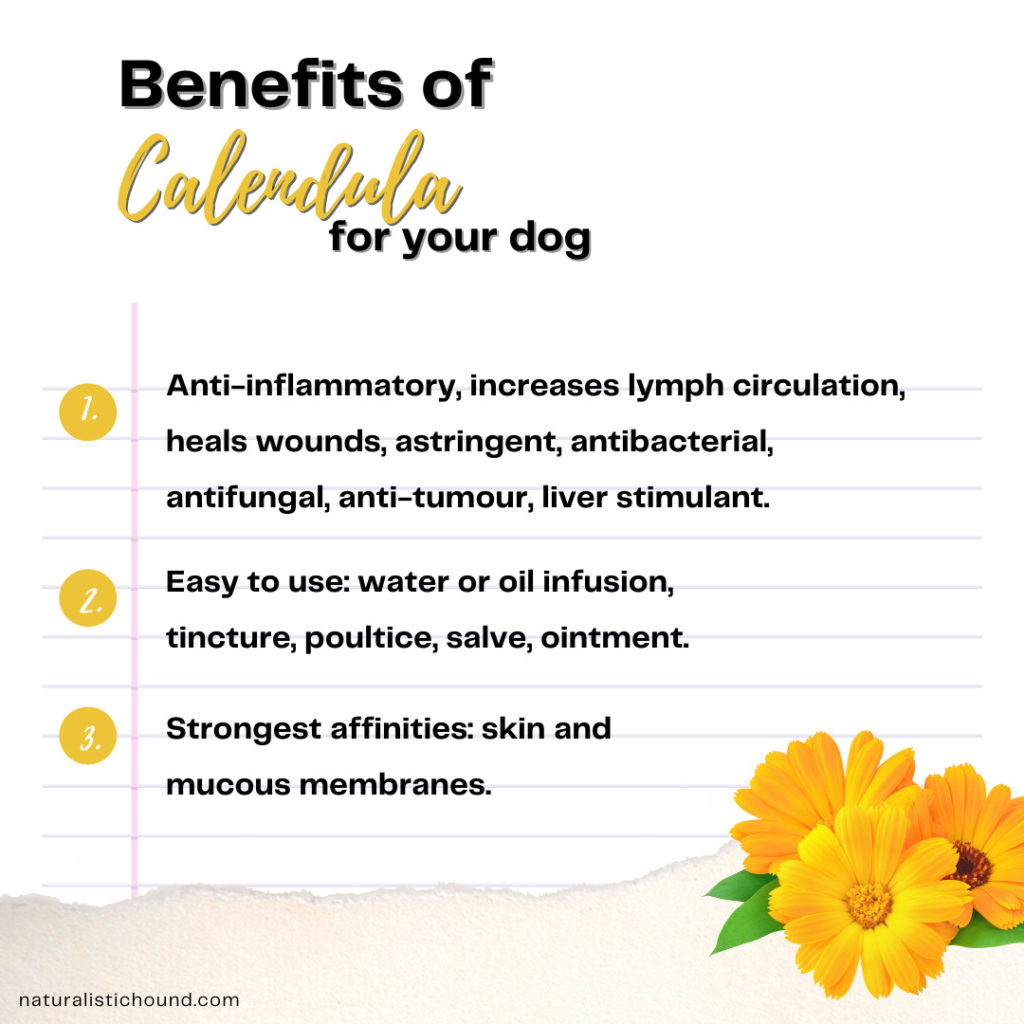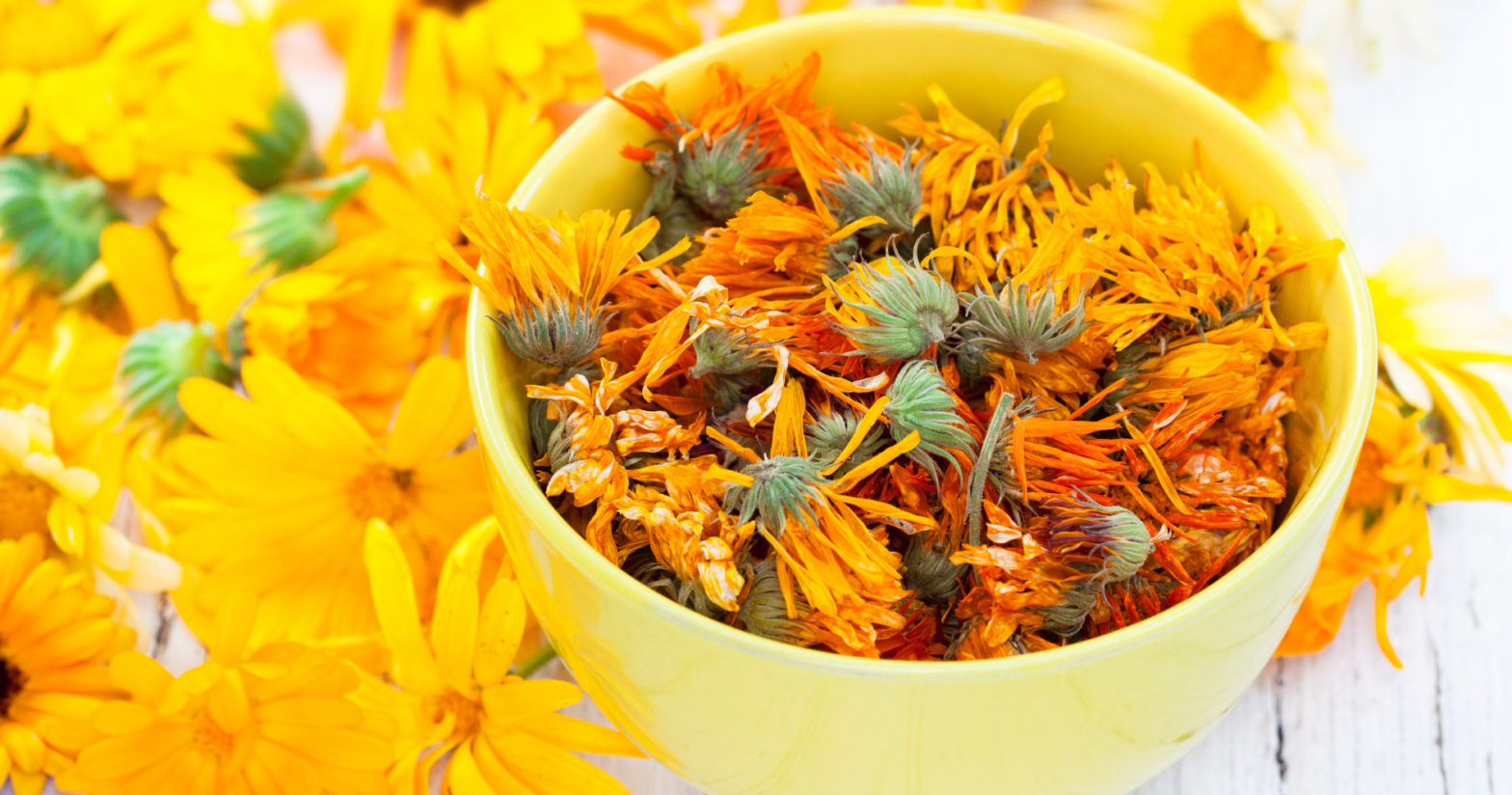Calendula has a long history of use and it should be one of the first herbs to consider in minor first aid situations.

External Use
Compounds in the flowers help speed cell reproduction and inhibit bacteria and fungi on the injury’s area.
A Calendula salve (or alternatively water infusion) is excellent in case of minor cuts, insect bites, abrasions and post-surgical incisions. The salve, applied externally, will quickly and efficiently alleviate pain and swelling and will help with its antimicrobial properties.
A Calendula infusion of the flowers is excellent in soothing and healing skin affected by inflammatory dermatitis (bug bite, sunburn, poison ivy etc).
A cooled water infusion can be used also as an eyewash for conjunctivitis to reduce irritation and infection.
Internal Use
A Calendula flowers infusion or tincture can be used to treat inflammation, ulceration or infections of the mouth, digestive tract or urinary tract.
It can also be beneficial in the treatment of candidiasis, a fungal infection.
Used internally, Calendula has been shown to treat chronic colitis and can also stimulate the immune system, aid liver function and calm the nervous system.
Studies are also showing Calendula compounds may possess anti-tumour properties.
How To Use Calendula
- If you’re using Calendula topically, you can make a tea with dried herbs. Use two tablespoons of the dried herb and add a cup of hot, almost boiling, water. Allow it to steep and when it’s cool, then strain the Calendula out of the water.
Put the calendula tea in a spray bottle and spray it into your dog’s coat to relieve itching or soak a cloth with it and apply it directly to the wound. Leave it on to dry.
You can also buy a Calendula tincture and add a few drops of water to the spray bottle. - To make a salve, use a ratio of 30g beeswax to 225ml of herb-infused oil.
- To use calendula internally, you can add one to several drops of a liquid tincture, or some Calendula tea or some Calendula herbs directly to your dog’s food.
Calendula is one of the safest herbs, however, it’s not recommended to use internally on pregnant dogs.
Your Dog Deserves His Best Life…
NATURALISTIC HOUND
A Healthy Outside Starts From The Inside!
ッ

